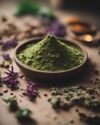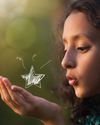
All spiritual leaders emphasize the importance of attending to an aspect of life that is beyond matter and physical energy, a reality transcendental to surface sensory perception.
The relationship between the physical and this non-physical reality has inspired great debates in philosophy and religion for millennia, and those debates continue among today’s scientists.
On one extreme are the physicalists, who propose that there is nothing spiritual, that consciousness and awareness are not real but only illusory byproducts—epiphenomena of the physical activity of the human nervous system. At best, physicalists see consciousness as a conundrum and call the mind-body relationship a “hard problem” because they cannot see how mechanical objective reality leads to subjective personal experience.
Then there are the dualists, who propose two different and separate fundamental realities, one objective and material and the other subjective and non-material. This begs the same question: how can two fundamentally different entities, one natural and obeying strict laws and the other seemingly supernatural, possibly interact and influence each other?
Scientists look at explanations asserting anything supernatural with skepticism. They shy away from explanations that do not conform to objective laws. Anything supernatural poses a problem for science, not only in the unexplainable mechanisms by which the non-physical interacts with the physical, but also in the potential “apparent moodiness” and “unreasonable decisions” of such supernatural actors.
The Advaita Vedanta perspective, brought to light by Adi Shankara, proclaimed by Swami Vivekananda, and more recently emphasized by Maharishi Mahesh Yogi, presents consciousness as primary and all there is. Consciousness is all there is!
This story is from the {{IssueName}} edition of {{MagazineName}}.
Start your 7-day Magzter GOLD free trial to access thousands of curated premium stories, and 9,000+ magazines and newspapers.
Already a subscriber ? Sign In
This story is from the {{IssueName}} edition of {{MagazineName}}.
Start your 7-day Magzter GOLD free trial to access thousands of curated premium stories, and 9,000+ magazines and newspapers.
Already a subscriber? Sign In

A Flower from THE HEAVENS
November 14 is Children's Day. This year, SARA BUBBER brings to you a world of forests, magical flowers, festivals, and some animals you may have never seen.

Meeting Phenomenal Women
The author, CHITRA BANERJEE DIVAKARUNI, is interviewed here by TARA KHANDELWAL and MICHELLE D'COSTA about her books on mythology, like The Palace of Illusions, which is a retelling of the Mahabharata from Draupadi's point of view, and The Forest of Enchantments, which is a retelling of the Ramayana, from the eyes of Sita. And there's The Last Queen, which is about Rani Jindan's life.

HERBAL TOOTH POWDERS: Rediscovering Ayurveda's Natural Secrets
SRAVAN BANDA presents a natural herbal tooth powder, offering a holistic approach to oral hygiene, harnessing the power of medicinal herbs.

The Dance of Light and Shadow Lessons from the Dolomites
ALAIN DESVIGNE explores the Dolomites, listed as a UNESCO World Heritage Site in 2009.

FINDING OUR WAY
A Polynesian Explorer's Journey of Discovery

The First Imprint: Understanding PTSD
CHRISTIANNA DEICHMANN is the Director of Education at the Association for Pre and Perinatal Psychology and Health (APPPAH), where she educates both professionals and parents on fostering the most nurturing environments for welcoming new life into the world.

The Tipping Point
In this final conversation of the series, J. FREDERICK ARMENT continues to talk with CHRISTINE JONES about promoting peace in the world.

UNLOCK YOUR POTENTIAL
Take The Brighter Minds Path To Cognitive Development

The Intrinsic Goodness of the Heart
DAAJI shares some thoughts on heartfelt acceptance and all it has to offer. He says, \"It is the heart's intrinsic goodness that allows us to accept everything as part of us.

How Does Fear Affect Our Roles as Mothers? - Neelam Shivhare explores some of the great ancient texts of India on motherhood, compares the behavior of Kaikayi and Yashoda
Neelam Shivhare explores some of the great ancient texts of India on motherhood, compares the behavior of Kaikayi and Yashoda, and realizes the importance of removing fear from our hearts in order to nurture our children.For young women like myself, who are future mothers, I trust we are on the path of becoming selfaware and brutally honest with ourselves. We are creative beings, never forgetting the gifts with which we have been bestowed— the love and tenderness, natural instincts, and intuition to feel the right path. It all lies in the mysterious meanderings of the heart. Are we really listening to our hearts, or confusing the bombarding information on social media with reality?